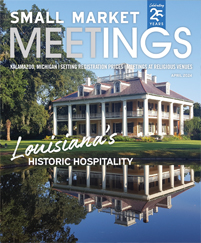Scheduling
Unfortunately, there’s no formula for scheduling. It’s an ever-moving combination of factors, including the type of event, the number of people and the time it takes to get from the pick-up to the drop-off, Stewart said. The best way to get a handle on it is to sit down with the planners to “really ask a lot of questions and really understand the dynamics,” he said.
“It’s a little bit of a knack,” he said. “I’ve seen people over the years try and spill out different formulas to come up with how you do it, but it’s more of a feel than a science.”
When everybody has to be at the same place at the same time, the planner will need more coaches to move all the attendees at once. But if there’s a reception or a casual event when people can come and go, or wander in at any time, planners can run fewer buses or shuttles on a loop.
Kirchner said it comes down to “how complex the movements are.” Having shuttles running to and from the airport, and between hotels and the convention center simultaneously is more challenging than getting everyone from point A to point B at the same time, he said.
“If you’re doing one thing for 1,000 people, it’s easier than doing two things for 500 people,” Kirchner said.
Budget
Getting the most out of an event’s budget starts with communication, Stewart said. There needs to be a good understanding of what an event entails, who the demographic is and what the planner needs.
Planners often want to know the cost right off the bat, but the cost can fluctuate until everything is finalized; and that’s an opportunity to save money, he said.
“If you communicate with us as you go and keep your provider informed of any change, that can save you some money,” Stewart said.
“If you thought you were going to have 200 people, but you’re only going to have 175 or 150, let us know. We can arrange for fewer buses. If the event arrives, and we haven’t heard from you, we have to charge you for that extra bus you probably don’t need.”
Upton echoed the importance of having that conversation early and continuing it throughout the planning. She also recommended that planners consider and avoid the area’s busy seasons, which could help with both rates and availability.
Kirchner said planners should take a close look at operators’ minimum charges. In a multipronged transportation situation, when buses may be running to the convention center, on sightseeing tours or to an evening function, planners should consider how to get the most out of the minimum charges.
“If you’re going to hire a bus and you need that bus for one hour, but they’re going to charge you for four hours, see what else you can use the bus for,” Kirchner said. “Your biggest waste might be in not fully utilizing the minimum charges.”











